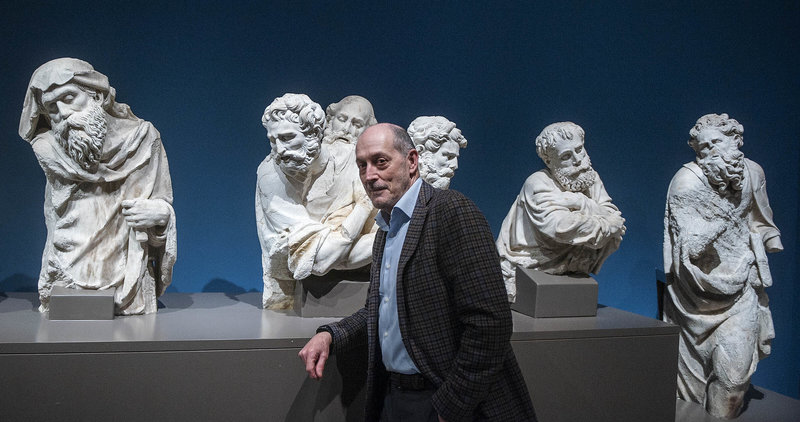Interview
Joan Oliveras
President of the National Art Museum of Catalonia (MNAC)
“Museums need a new relationship with society”
The businessman and jewellery designer Joan Oliveras (Barcelona, 1957) has been appointed the new president of the National Art Museum of Catalonia (MNAC).
What is your ideal MNAC, and what is achievable or unachievable in turning it into that?
The ultimate ambition is, one, a MNAC with resources, and two, a MNAC that can continue to compete in the league of large museums. For me these issues are fundamental. As for what is achievable, I’m very stubborn and optimistic, and I’ve never liked the word “unachievable”.
The matter of resources clashes with reality.
The MNAC needs sufficient revenue to expand the collection and consolidate its role as the museum of reference in medieval art, while also acting as a national museum.
How do you get the resources that are lacking?
With good organisation. Things need to be streamlined. The MNAC needs its own law as the Prado, the Reina Sofía, the Louvre or the Metropolitan have. I know we’re smaller, but we are in this league. Either we have the tools to compete or we won’t be able to continue to do what we do. If we believe in the institution, we must provide it with the tools for it to develop.
You don’t like the word ’unachievable’, so let’s talk about the challenges.
We need to be aware of our own particular obstacles and solve them creatively. The most complex thing is building consensus, much of which is political. The three public administrations that make up the MNAC consortium [Catalan government, Barcelona city council and Spain’s culture ministry] often have differences. Consensus is possible if we’re able to put the museum above all else. The current governance mechanisms are far removed from the museum.
Do you have a strategy for obtaining private funds?
The MNAC needs a good sponsorship and patronage department. Patrons used to do what they did for nothing, out of pure conviction. There are some of those left, but I don’t see any new ones on the horizon. Sponsorship is now a matter of exchange. And the exchange is always based on interest. What shall we do? Approach sponsorship from the perspective of seeking what helps us. And that should open the door to companies outside the usual framework.
The pandemic has opened up a new scenario for museums. How do you plan to deal with it?
We’ll set up a board to think about the MNAC’s future role. The digital revolution has transformed our lives. Added to the chronic effects of the pandemic, a different reality will take shape in which we don’t know if museums will be able to continue playing the role they have until now. We don’t know if a different world will emerge in which museums will have to scramble to find a new relationship with society.
Who will be on this board?
I don’t have the names yet. It will be multidisciplinary. There will be experts in digital technologies, communication, cultural management, business management, economics, psychology...
What unites or separates you from your predecessor, Miquel Roca Junyent?
We’ve known each other for many years. He’s done important work in the museum. In many ways I continue to be part of his journey and in others I innovate things but complete his contribution.
What do you think of the fact that the King of Spain has closed the museum twice to hold a banquet?
There are principles under which we should always act as those who have responsibilities in public institutions. One is that it should be at no cost to the institution. Two is that it contribute to the institution’s sustainability. And three that it isn’t against the public interest. The case you are asking me about does not meet any of that. Closing a museum for an event seems to me a privilege that undermines culture and the public’s access to culture.
Interview art
Leave a comment
Sign in.
Sign in if you are already a verified reader.
I want to become verified reader.
To leave comments on the website you must be a verified reader.
Note: To leave comments on the website you must be a verified reader and accept the conditions of use.

